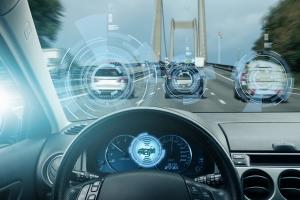UNECE’s Working Party on Automated/Autonomous and Connected Vehicles has adopted the draft of a new regulation that defines provisions for the approval of vehicles with Driver Control Assistance Systems (DCAS) and provides minimum safety requirements for vehicles equipped with the Advanced Driver Assistance System (ADAS), such as lane keep assist.
DCAS are a subset of Advanced Driver Assistance Systems (ADAS). While active, DCAS are able to stabilize or manoeuvre the vehicle.
The new regulation builds on UN Regulation No. 79 adopted in 2018 and covers a broader range of technologies to be introduced in new models. For instance, the new regulation will no longer limit the use of lane changing systems to motorways (roads with 2 lanes and a physical separation from traffic in the opposite direction) but will extend it to other types of roads.
The new regulation aims to allow the approval of a combination of driving control assistance features, including assistance to braking, accelerating, and overtaking.
However, the new regulation does not cover full driving automation, and therefore requires manufacturers to implement strategies to ensure that drivers have appropriate knowledge of the capabilities of assistance systems and do not overestimate them (mode awareness).
To avoid driver overreliance on such systems, the regulation stipulates that DCAS shall be designed to ensure that the driver remains engaged with the driving task. The driver’s hands must remain on the wheel and the system shall monitor the driver’s visual engagement with the road, triggering alarms after 5 seconds when it detects that this is no longer the case.
The regulation also stipulates that manufacturers will be required to submit an outline of the systems’ design to type approval authorities. The validation of DCAS shall ensure that a thorough assessment, considering the functional and operational safety of the features integrated in DCAS and the entire DCAS integrated into a vehicle, is performed by the manufacturer during the design and development processes.
The regulation will require manufacturers to monitor the performance of these systems once on the roads and provide periodic (at least once a year) and ad-hoc reports on critical safety occurrences to the authority that approved the vehicle.
The new regulation will be submitted to the World Forum for Harmonization of Vehicle Regulations (WP.29) for adoption in June 2024, with an entry into force foreseen in January 2025.
Note to editors
About autonomous driving at the World Forum for Harmonization of Vehicle Regulations
The World Forum for Harmonization of Vehicle Regulations, hosted by UNECE, is the intergovernmental platform responsible for the regulatory frameworks regarding the safety and environmental performance of vehicles, their subsystems and parts.
Its dedicated Working Party on Automated/Autonomous and Connected Vehicles (GRVA) brings together countries including the EU, USA, China, Japan and Canada to develop internationally harmonized regulations, resolutions and guidelines governing automated driving functionalities, such as provisions related to the dynamics of vehicles (braking, steering), Advanced Driver Assistance Systems, Automated Driving Systems well as Connected Vehicles and Cyber Security provisions. The group currently supervises 8 informal work groups (IWGs) and tasks forces.
UN Regulations enter into force six months after their adoption by the World Forum. This is the time given to contracting Parties to the UN vehicles agreements to notify the United Nations Office of Legal Affairs about their opposition to the adopted text, or their intention not to adopt its provisions, and also to provide countries with sufficient time for implementation.


